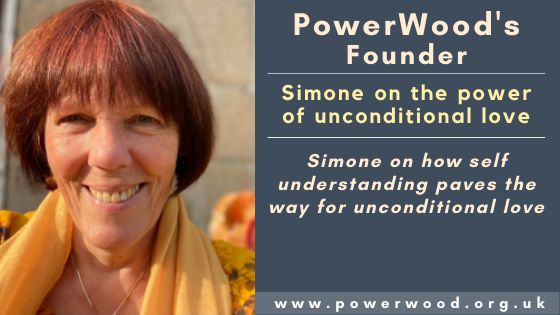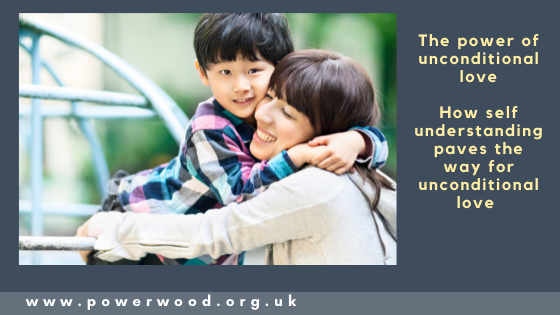
Most of us become parents with the idea that we will parent perfectly (the Disney family dream), or at least better than our parents. We believe there will be love for our children and that, without a doubt, that love will help us overcome all inconveniences and tribulations and sleepless nights.
Conditional and unconditional love and behaviours
In conditional love: love is ‘earned’ on the basis of conscious or unconscious conditions being met by the child, whereas in unconditional love, love is ‘given freely’ to the child ‘no matter what’. Loving is primary. Conditional love requires some kind of finite exchange, whereas unconditional love is seen as infinite and measureless.
Unconditional love separates the individual from her or his behaviours. However, in certain situations, the individual may exhibit behaviours that are unacceptable. (Source)
For example, we might love our child to bits, however when he bites his sister, we don’t like his behaviour, but we don’t love him less and we help him find ways to express himself without hurting others.
All children love their parents unconditionally, and their natural instinct is to please us, the parents. This is ingrained in them for survival purposes in our evolutionary past, therefore if they do not manage to adhere to our wishes it is a sign that something is stressing them…
Our love as a parent is not so automatically unconditional, which might trigger our children’s insecurity.
Children love to hear and often want to be reassured that they are loved just the way they are. Siblings often want to know which child is most loved by the mother, father, gran etc . It is evolutionarily defined in our children to fight their siblings for the best chance of survival and to shine a negative light on a sibling, to get the most positive attention from us. In the past, such behaviour had survival value.
What to tell the children
Explaining the concept of “Love doesn’t exist in measures”, as follows, might help take the wind out of the sails of insecurity and sibling rivalry around this topic. Children love hearing stories about themselves when being small and loved by their parents.
We parents might not have managed to immediately bond with our newborn child e.g. if it was a traumatic birth and experienced Post-Traumatic Stress Disorder (PTSD), suffered from postnatal depression, or because of our own childhood trauma being triggered etc.
“When my eldest was born, it was quite traumatic. The first half year I felt mostly empty and unreal. The third day, my daughter sneezed for the first time ever, and I was in awe of this wonder: so tiny and sneezing as an adult, and her cute wrinkly face made me laugh out loud. It is one of the fond memories that my daughter likes to hear over and over again.” Mum of an eight-years-old daughter
To an only child
“We love someone or we don’t. I might not like your behaviour or sometimes I might find it hard to understand you, however that doesn’t affect my love for you. My love for you is just there.”
If you feel it is appropriate you can share some more about your love for your child.
E.g. “From the first moment I saw you I was completely smitten”, or “it took me some time to land after the birth, and when I had arrived I experienced my forever love for you.”
To a child with siblings
“We love someone or we don’t. Therefore love for our children is not comparable.
There might be a child who we find easier to understand and/or easier to get along with, but that doesn’t affect my love. My love for you is just there.”

Accept the love of our children
Children love their parents unconditionally, this is evolutionarily defined because they are dependent on our support in many ways. This means that we never have to doubt the love of our children for us. And when we doubt if our child loves us, we have to critically unpick our own thinking. Ask ourselves what does it say about us that we doubt that our child loves us, while we know in our intellectual mind that they do.
What does it tell us about ourselves
If we haven’t been modelled that it is normal to be loved by our parents we might not have an easy reference to what it means to ‘love’ and we might wonder if we love well enough and/or in the right way. Furthermore, our insecurity about and unfamiliarity with love might stimulate unhelpful emotional over-involvement.
We might feel challenged by the behaviour of our children, we might expect them to obey in the way we obeyed our parents, and if they don’t, we might feel embarrassed by the behaviour of our children, as we feel it might reflect badly on us as parents.
If those types of thoughts go through our heads, we have lost our emotional independence.
We might have been raised by parents who, while they always did the best they could (we never doubt that), weren’t able to offer us a safe attachment. Research estimates that in developed nations about two thirds of children have a secure attachment to their parents, falling to one third in disadvantaged populations*. If that was the case we are evolutionarily defined in our subconscious to distance ourselves from our loved ones.
We might make our love dependent on the behaviour of our children, which unfortunately will stimulate their feelings of unsafety and trigger emotional and or sensory overload. This in turn can lead to the Cycle of Emotional and Sensory Overload, meaning they cannot relax and subconsciously will put all their energy into either controlling the outside or their internal world, thus creating a false sense of safety. This can look like picking a fight, or controlling their food intake, so they feel that despite the overwhelm there is still something they have control over.
We might have to revisit our runway. We also need to look at the kind of thoughts that got imprinted within us as we grew up, and how we ourselves were raised. Taking time to understand the beliefs and values that we imbibed as children, can raise our awareness and act as a flag-up when we are not parenting to our own ideal. We also have to find ways to strengthen our baseline – our energy level and emotional resilience – so we have the excess energy and emotional fortitude to tackle this new challenge.
Loving is more important than to be loved
We accept the love of our children gracefully and never doubt it. If we doubt their love we ask ourselves what it tells us about where we are at this moment.
It is more rewarding emotionally and improves our health to love than to be loved. Our children need to know that however they behave, whatever they shout at us, however badly they have hurt us, we know they love us and that we feel secure in their love. In this way we are reinforcing that we know that whenever they behave outside of what is acceptable, the only reason is they must feel out of sorts or because something is bothering them and that they don’t have to worry as we will find out together how we can sort it out with love.
This will help them later in life to be able to separate behaviour from the person they love, and find practical solutions for issues that bother them.
When misbehaving
It can be easy to take our child’s behaviour personally, to see it as purposely thwarting whatever we are wanting to achieve (getting out of the door in the morning, paying a visit without any drama, getting through a meal, etc) especially when our baseline is low.
Parents are very often triggered by the more or less innocent ‘naughty’ behaviour of our children because we might see it as a reflection on our parenting skills or love, or we might feel uncomfortable with how it is seen in our social environment and we ourselves enter the Cycle of Emotional and/or Sensory Overload which will trigger our child to feel unsafe and become triggered too.
Whenever our children are displaying ‘naughty’ behaviour, or are triggering us, it is a flag-up. They flag up they don’t feel great and are in the Cycle of Emotional and/or Sensory Overload, and are triggered in a stress-response. They are subconsciously trying to create a false sense of safety, to feel at least in control of something in their lives within their overwhelm.
The quickest way to create safety for our child, is by focusing on our own baseline as our energy level and emotional resilience allows us to stay calm and not get triggered or if we do get triggered we still have the creativity to come up with a contingency plan that prevents escalations.
“Me and my daughter Anna (8 years old) were shopping for school clothes. We were both tired, thirsty and hungry. I had nearly forgotten we had to pick up my ‘good’ dress from the dry cleaners. It would have to be the last on our long shopping list. I mentioned it to Anna, and her face turned sour in one second and she started kicking the clothing racks. I felt my anger and embarrassment rising in my body and before my thoughts escalated it further. I went onto my knees, hugged her and said with a big smile on my face “Let’s go home, I’ve had enough”. Anna calmed down immediately and we went home. I felt quite content that I had managed really well to prevent the escalation in both of us.”
Supportive Parenting
If you’re looking for research studies to support this approach, one great source that cites supportive research is Alfie Kohn’s book Unconditional Parenting. Please don’t take on board his views on parents as Olga Mecking described in the article Why parenting books are not really written for the parents.
“In Punished by Rewards (1993), Kohn claims that the use of punishments and rewards should be limited, especially in relationships that are unequal, such as between parents and children, or between teachers and students. But he conveniently leaves out another unequal relationship: the one between parents (predominantly female) and experts, such as himself (predominantly male, at least in the US). And when it comes to parents, he has no problems using punitive tactics such as shaming: ‘If you’re unwilling to give up any of your free time, if you want your house to stay quiet and clean, you might consider raising tropical fish instead,’ he writes in Unconditional Parenting (2005).”
© 2021 Simone de Hoogh, senior coach and consultant, and founder of PowerWood. All posts by Simone de Hoogh
*It is estimated that around two-thirds of children in population samples have a secure pattern of attachment across cultures (Van Ijzendoorn & Kroonenberg, 1988; van IJzendoorn et al., 1999), although this falls rapidly to around one-third in disadvantaged populations (Carlson, 1998; Weinfield et al., 2004) and less in maltreated populations. Source: https://www.ncbi.nlm.nih.gov/books/NBK356196/ DR: 06-09-2021
Help us to continue support to all neurodiverse families and individuals
PowerWood offers to neurodiverse families understanding, simple tools and strategies that enable us to support ourselves and our children through emotional overwhelm. If you enjoy reading the articles please support PowerWood making all information available to all by becoming a PowerWood Community FreeBee or Friend member. Thank YOU!

